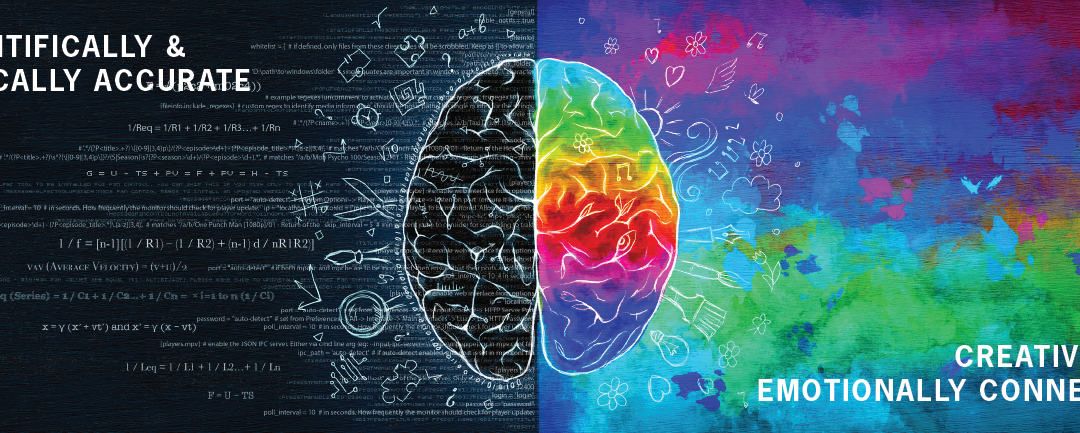Emotion is the Path to Marketing Success
Marketers often work hard trying to understand the nuts and bolts of a client’s therapeutic or diagnostic product, providing the copy version of a schematic—part 1 is this and does that, part 2 is that and does this—but without going beyond a glorified litany of features and benefits.
Successfully forging a bond between science—and technical features—with creative does require scientific and medical accuracy, as leveraging benefits and capabilities of your product or system can be an important brand differentiator, both pre-launch and for the long term.
But just as one hand is as important as the other, appealing to both sides of the customer or prospect’s brain is vital—the left, more logical side, and the right, more creative side.
Left or Right Brain? Yes
Successful marketers have to go beyond facts to also touch emotions. How will this product help my pain points in my practice? What other non-tangible benefits will improving efficiency provide—fewer angry calls from frustrated clinicians? Peace of mind?
According to Alan Zorfas and Daniel Leeom in the Harvard Business Review, on a lifetime value basis, emotionally engaged customers are more than twice as valuable as are merely satisfied customers.1
Emotionally connected customers purchase more of your products and services, visit your website or ordering platform more often, show less price-sensitivity, are more engaged with your communications, follow your advice more regularly, and recommend your services more to others.

Thoughtfully shaping the customer experience
Molding a customer experience by being thoughtful about the emotional connections you’re attempting to build and investing in the touchpoints that drive these connections is a tried-and-true way to increase customer value, maximize the return on marketing spend, and minimize risk, add Zorfas and Leeom.
Emotionally connected customers not only generate greater value, but in every interaction become more and more convinced that “this company gets me,” says Martha Townsend, director of diagnostic marketing at San Francisco-based Cytokinetics.2
When you develop emotional brand experiences that engage, you are successfully defining who your brand is and why it matters—”in marketing, relationships mean everything,” add Zorfas and Leeom.
Appeal to the heart first
Appeal to the heart first, then the head; share more often than sell, and humanize more often than sensationalize, adds Townsend.
Ultimately, the blending of science and creative will maximize a brand’s opportunities at every stage of its life cycle.
An agency partner such as REALITYRx creates enduring links between your strategy, your message, your customers, and your brand.
REFERENCES:
- Zorfas A and Leemon D. An emotional connection matters more than customer satisfaction. Harvard Business Review. August 29, 2016.
- Townsend M. Embracing emotions in medical marketing. May 24, 2018. Available here on LinkedIn.

